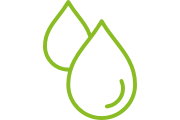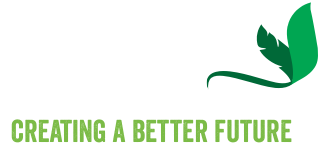The ‘Moy Park farming way’, creating a better future from farm to fork

Farming practices that support a low carbon economy
By engaging and influencing with stakeholders across the agri-food sector, we will work collaboratively to set the standard for farming practices that support a low carbon economy.

Uphold the highest standards of animal welfare
We manage our Animal Welfare under six pillars that ensure a comprehensive approach is taken to caring for our birds. From research to ensure we have the latest scientific information available, to setting standards for culture, behaviour, biosecurity and communication and training our people to do their best, we cover every aspect within the supply chain.

Recycling packaging
We will design our packaging to provide the required product protection whilst minimising the materials we use. By 2030, we aim to reduce overall usage of packaging by 5% year on year while increasing the percentage of recyclable packaging by 5.

Electrifying of the fleet
As part of our goal of reaching net zero emissions from our operations by 2040, we’re committed to having 100% Electric Vehicles across our business by 2030.
Our UK Transport Division has committed to mass decarbonisation of its transport operation with 50 Liquified Natural Gas (LNG) trucks. The new biogas trucks, will offset around an 5,600 tonnes of CO2 annually.
Our in-house trials have demonstrated that vehicles running on biomethane reduced CO2 emissions by more than 80% Hugh Nicholson, Director of Logistics
Gas fuels created through anaerobic digestion are collected for vehicle fuel while solids can be used as fertiliser for farms, locking carbon into earth and away from the atmosphere, helping to negate waste output and emissions.
This ‘circular economy’ methodology opens the door to reducing greenhouse gases in vehicular transport.
Passionately determined to conserve and protect
We're passionately determined to conserve and protect the natural resources we use and rely on every day in our operations. From water conservation, farming initiatives, responsible sourcing, animal welfare, packing initiatives, waste management and biodiversity, across every strand of our business and supply chain from farming to operations, we're acting on making things more sustainable across everything we do.
We've set a bold path forward to ensure our ability to operate sustainability and committing to net zero emissions by 2040.

Reduce our water usage
We’ve committed to work with farmers and other partners to advance sustainable practices that improve water resiliency and quality. By 2030, we aim to reduce water use by 15% across our operations, from a 2019 baseline.

Circular economy
Through our actions and commitments, we will lead the drive to a circular economy.

Accreditation
Achieve accreditation to ISO 14001, ISO 50001 and PAS2026 at all our production sites.

Deforestation-free Supply Chain
We recognise the need to accelerate progress towards a secure, resilient supply of sustainable soy, therefore we are taking action to ensure that soy production within our supply chain is sustainable and deforestation-free for the long term.

Source 100% Renewable Energy
We are currently working towards sourcing 100% of our electricity from renewable sources by 2025 and working to reduce our energy intensity over the same period.

Reduce Our Packaging
'Remove, Reduce, Recycle and Research’ strategy - aims to tackle the use of plastics and packaging across our business and industry. By 2022, our rigid packaging will be 100% recyclable.

Reduce Our Food Waste
Continued commitment to waste minimisation projects and zero waste to landfill.
Environmental stewardship in action
Education
Raising awareness and encouraging responsible use
- 'Every Drop Counts' (water consumption)
- 'Switch it off' (when not in use)
- 'Close the Door' (Chill rooms)
Enhanced engineered solutions & controls


(Gas / Oil)

More efficient refrigeration systems - energy reduction and removal of CHGs
Heat transfer pumps
LED lighting
Switch to more efficient fuel sources (Heavy fuel oil to Nat Gas - Improved combustion and significantly lower CHG emissions)
Installation of energy efficient equipment (e.g. Variable Speed Drives and Compressors)
Water use - better utilisation of aM&T (Auto Monitoring and Targeting systems)
Fit-for-purpose water supply at user interface (e.g. balance flow, pressure and temp)
Water recycling / Reuse (e.g. Reverse Osmosis in boilers)
Prevent heat, compressed air & steam losses (e.g. insulation; sensors; inspection and repair)
Reliability engineering / Predictive maintenance
Enforcement

- Development of SOPs Standards and Guidance
- Utility Saving Opportunity Scheme Audits
- Operational Excellence: Environmental & Engineering Pillar Book

